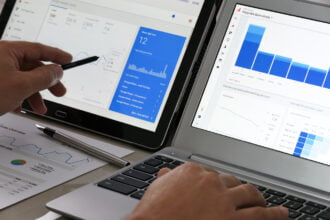 Ten cities in the United States have signed on to the City Energy Project (CEP), a major initiative to improve the energy efficiency of buildings, in part by using energy data.
Ten cities in the United States have signed on to the City Energy Project (CEP), a major initiative to improve the energy efficiency of buildings, in part by using energy data.
 Ten cities in the United States have signed on to the City Energy Project (CEP), a major initiative to improve the energy efficiency of buildings, in part by using energy data. The project, administered by the National Resources Defense Council and the Institute for Market Transformation, will begin its efforts with pilots in Atlanta, Boston, Chicago, Denver, Houston, Kansas City, Los Angeles, Orlando, Philadelphia, and Salt Lake City. Inspired in part by New York City’s successful efforts to make its buildings more energy efficient, CEP hopes to reduce annual carbon emissions by five to seven million tons—the amount generated by one to one and a half million passenger vehicles—and lower annual energy bills by almost $1 billion.
Ten cities in the United States have signed on to the City Energy Project (CEP), a major initiative to improve the energy efficiency of buildings, in part by using energy data. The project, administered by the National Resources Defense Council and the Institute for Market Transformation, will begin its efforts with pilots in Atlanta, Boston, Chicago, Denver, Houston, Kansas City, Los Angeles, Orlando, Philadelphia, and Salt Lake City. Inspired in part by New York City’s successful efforts to make its buildings more energy efficient, CEP hopes to reduce annual carbon emissions by five to seven million tons—the amount generated by one to one and a half million passenger vehicles—and lower annual energy bills by almost $1 billion.
The project administrators will work with each city to develop a customized plan to save energy, which will include low-cost measures, such as sensors that automatically turn off lights or heating and cooling systems when nobody is there. The cities have not yet announced any specific technologies they will use, but companies and academic groups have demonstrated data-driven applications that help building managers make their systems more efficient and promote energy-saving behaviors in the workplace for several years.
One major goal of the project is to increase the availability of building energy data. Building energy data can help owners understand how much energy their buildings use and identify opportunities to cut potential waste. The project’s organizers also hope prospective tenants will one day be able to use the information to make leasing decisions based on potential energy cost and environmental impact, thereby incentivizing building owners to invest in energy efficiency. Finally, the data will be used to help assess how well the project helps cities improve their energy efficiency.
CEP is not the only major municipal energy efficiency initiative to focus on data. Eight of the participating cities have also committed to participate in the U.S. Department of Energy’s Energy Data Accelerator program, along with other cities around the country. The program connects local governments with local utilities to help building owners get easier access to energy usage data. It aims to help building owners benchmark their energy usage and leverage third-party analytics providers in an effort to become more energy efficient. Each partner city has committed to provide whole-building data to at least 20 percent of commercial or multi-family building owners by the end of 2015.
In the short term, these projects will help demonstrate the potential for data to improve energy efficiency and help other cities learn how to implement these types of programs. In the long term, these projects are an important step towards the ultimate goal of building smart cities that leverage a vast amount of data to create better communities.
This post was originally published on the Center for Data Innovation blog.









